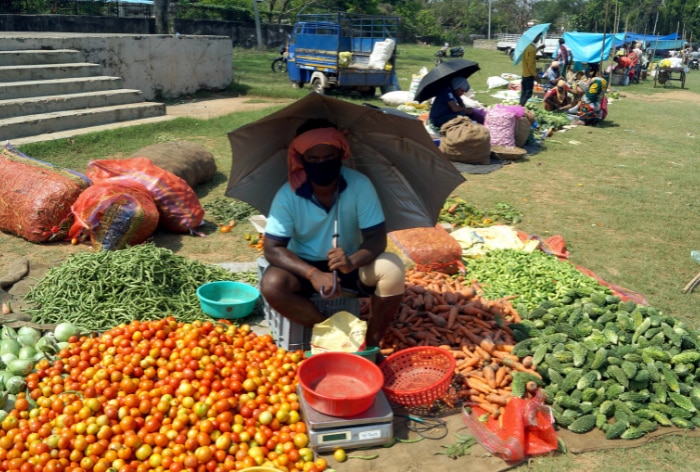RBI Governor Shaktikanta Das said the frequent incidences of recurring food price shocks pose a risk to anchoring of inflation expectations.

New Delhi: At a time when vegetable prices are skyrocketing across the country, the RBI has made some announcements that will bring some relief to consumers. RBI Governor Shaktikanta Das in a press meet on Wednesday said the vegetable prices in India have begun to soften and are likely to decline from September.
Why Vegetable Prices Will Come Down From September?
The statement from the RBI comes at a time when the spiralling prices of vegetables and cereals have led retail inflation in July to surge 7.44%, highest in 15 months. On why vegetable prices will come down from September, he said the supply has increased now.
“Looking ahead, the spike in vegetable prices in July is starting to see a correction, led by tomato prices. New arrivals of tomatoes in mandis are already softening the prices, coupled with proactive supply management in the case of onions. We expect to see an appreciable slowdown in vegetable inflation from September,” the RBI Governor said.
The consumer price inflation has gone up to a 15-month high of 7.4 per cent in July after staying below the 6 per cent upper tolerance band for the previous three months. The notable increase was primarily due to the sharp rise in tomato and other vegetable prices.
Vegetable Prices Have Gone up by 37 per cent
It should be noted that vegetable prices have gone up by 37 per cent on a year-on-year (Y-o-Y) basis, with tomatoes leading the surge at 201 per cent hike in prices.
“We expect to see an appreciable slowdown in vegetable inflation from September,” Shaktikanta Das said.
He further added that the outlook for cereal prices looks bright even though geopolitical tensions could hamper food prices.
Shaktikanta Das said despite elevated core inflation, the steady easing seen in it over the last few months is a sign of monetary policy transmission. He also said that the central bank would be on guard to ensure that inflation does not remain persistent and get generalised across segments.
“The frequent incidences of recurring food price shocks pose a risk to the anchoring of inflation expectations, which has been underway since September 2022. We will remain watchful of this,” Shaktikanta Das said.
RBI on Measures to Contain Price Rise
Saying that the country has raised rates by a total of 250 basis points since May 2022 to tame rising prices, he said the RBI however remains firmly focused on aligning inflation to the Monetary Policy Committee’s mandated medium-term target of 4%.
He also added that the price stability has to be the basis of sustainable growth, adding that the conditions are favourable for the growth to continue and the capex cycle to gain momentum in 2023-24.
On the rupee, the central bank chief reiterated that the RBI has no specific target but would continue to build its foreign exchange reserves to help manage any dollar outflows.
“The Reserve Bank has also made conscious efforts to improve systemic resilience and efficiency by maintaining external stability and building forex reserves,” he said.
Centre Faces Criticism For Rising Vegetable Prices
The Central government earlier faced strong criticism after tomato prices went up as much as eight-fold following heavy rains in key growing areas in the country. Even as the cost of tomatoes is steadily falling, but a sharp rise in onions put the authorities on high alert.

Don’t Miss Out on the Latest Updates.
Subscribe to Our Newsletter Today!

